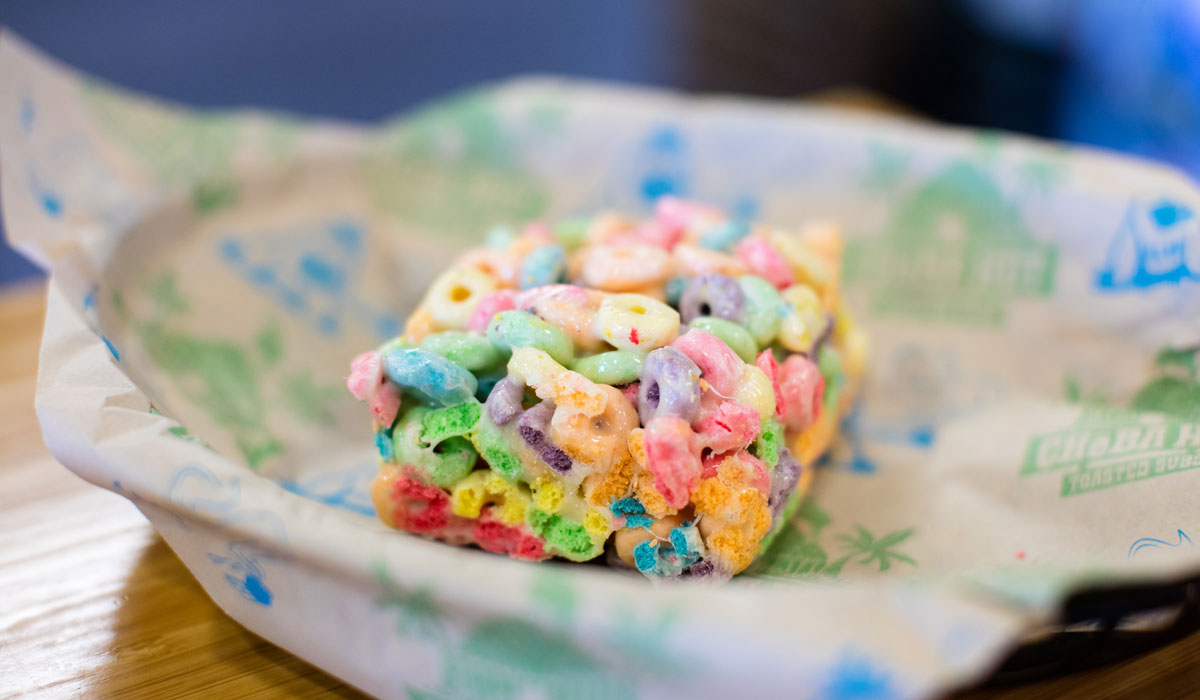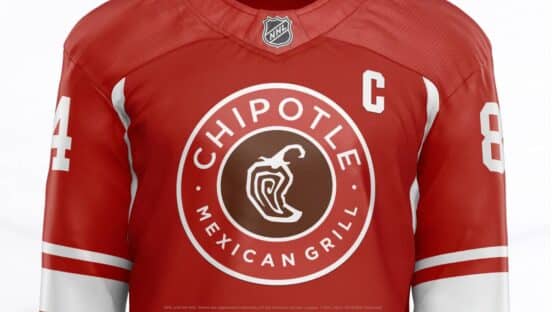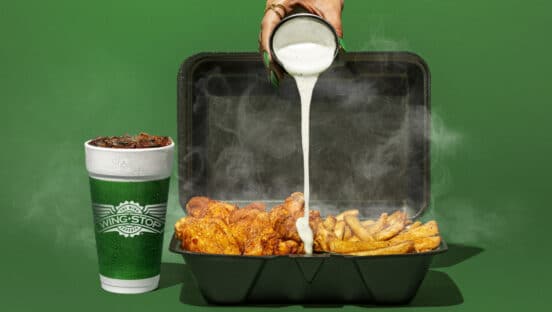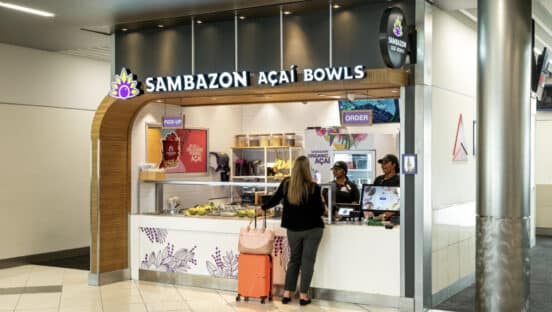Cheba Hut, a cannabis-themed concept based in Colorado, is a self-described experiential fast casual.
The company’s foundation is based in counter-culture and “flipping the bird to the establishment” with its food. The relaxed environment often features a craft beer bar with beverages from local breweries. Cheba Hut’s colorful messaging to consumers is filled with puns like “drop a dime,” “munchies,” and inviting consumers into their “joint.”
But when the COVID pandemic hit in March and dining rooms were shut down across the country, Cheba Hut was forced to pivot from that unique atmosphere.
Seth Larsen, chief relationship officer at Cheba Hut, refers to it as a kick in the stomach, but the restaurant knew its strong menu and customers would carry it through the crisis.
“It’s always a concern anytime there’s a significant disruption like that. You take stock of yourself as a leadership team and as a brand,” Larsen says. “… I think for the most part, we always felt we make great food, and at the height of the pandemic when your week-over-week sales are nearly down 50 percent, it’s your diehard fans and your customers that are keeping you in business. We’ve been operating here for 22 years and without our loyal fans, we certainly couldn’t have gotten through the pandemic. … We never went backward in food quality ever in our 22-year history. Really committing to making great food—that’s really one of the basic principles of operating a restaurant.”
After a sluggish start, the 32-unit brand is ranging from down 10 percent to flat in the past eight weeks. A significant part of that growth was driven by an app and rewards program and curbside pickup—both of which were launched during the pandemic.
Larsen says before COVID, less than 2 percent of sales came from the website and mobile. In the past month and a half, it’s skyrocketed to more than 20 percent. Average ticket grew from about $14.50 pre-pandemic to $17.50 in the past couple of months.
He calls it a “huge transition and push into the 21st century.”
“Anytime you launch new technology, you risk interrupting a stream of revenue when every single dollar counts now more than ever,” Larsen says. “So the launch of the app and what our marketing squad and our VP of marketing Brian Loeb did was actually pretty cool, and the results that we’ve gotten from that app have been awesome.”
Regarding the new curbside program, Larsen attributed the successful roll out to Cheba Hut’s ops team. Until dining rooms were allowed to open, locations were operating curbside only; some stores are still using that model.
The chief relationship officer notes that even though Cheba Hut builds fun restaurants and wants to be a destination, when the pandemic hit and dining rooms weren’t open, guests weren’t coming for the atmosphere. They were coming for the food.
“I’ve always said that our food is awesome,” he says. “I personally feel we make the best sandwich around at the best price point with the best hospitality, and this pandemic has proven that. I’ve always said we’re relatively recession-proof and I guess that includes pandemic proof—we’ve shown that, as well.”
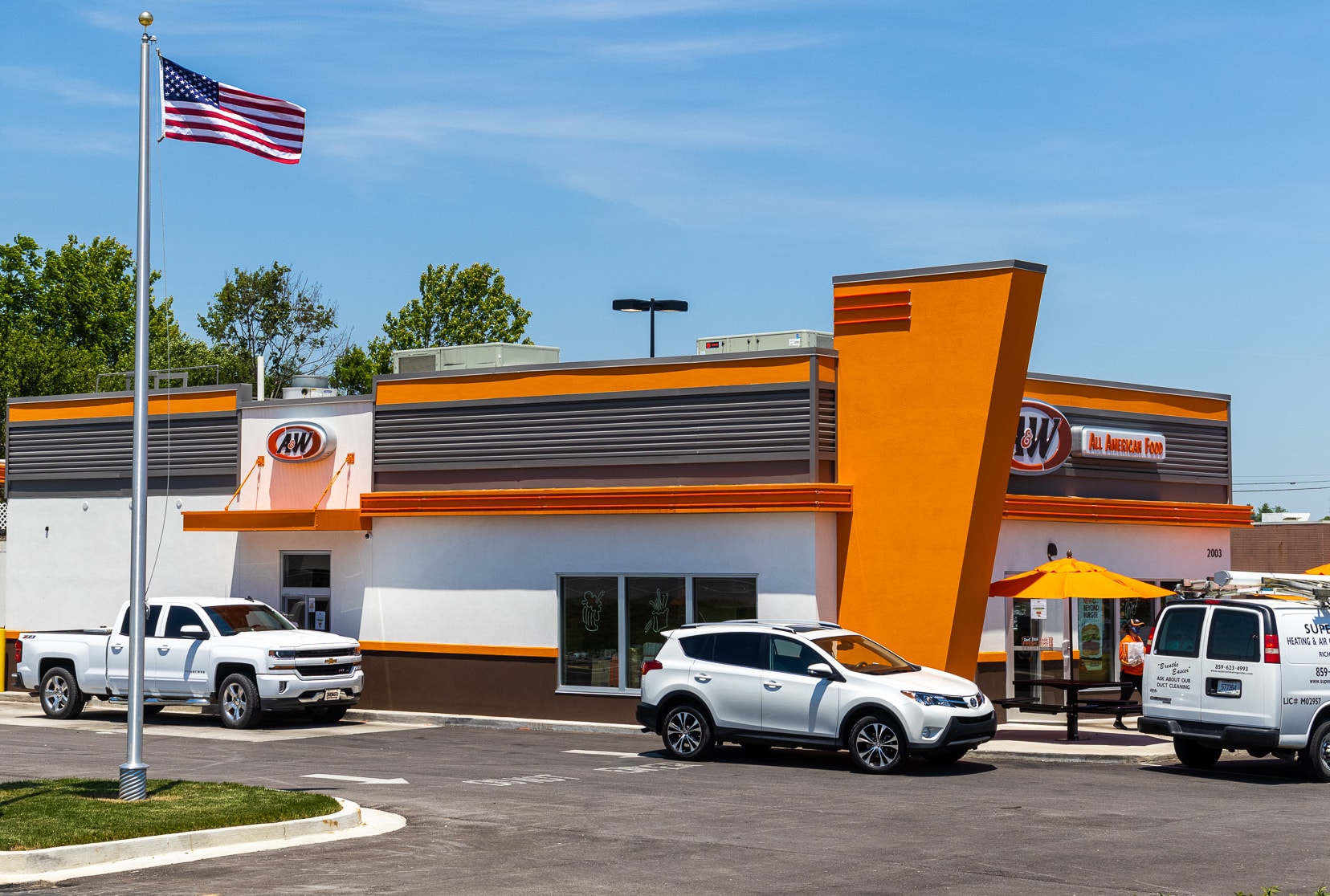
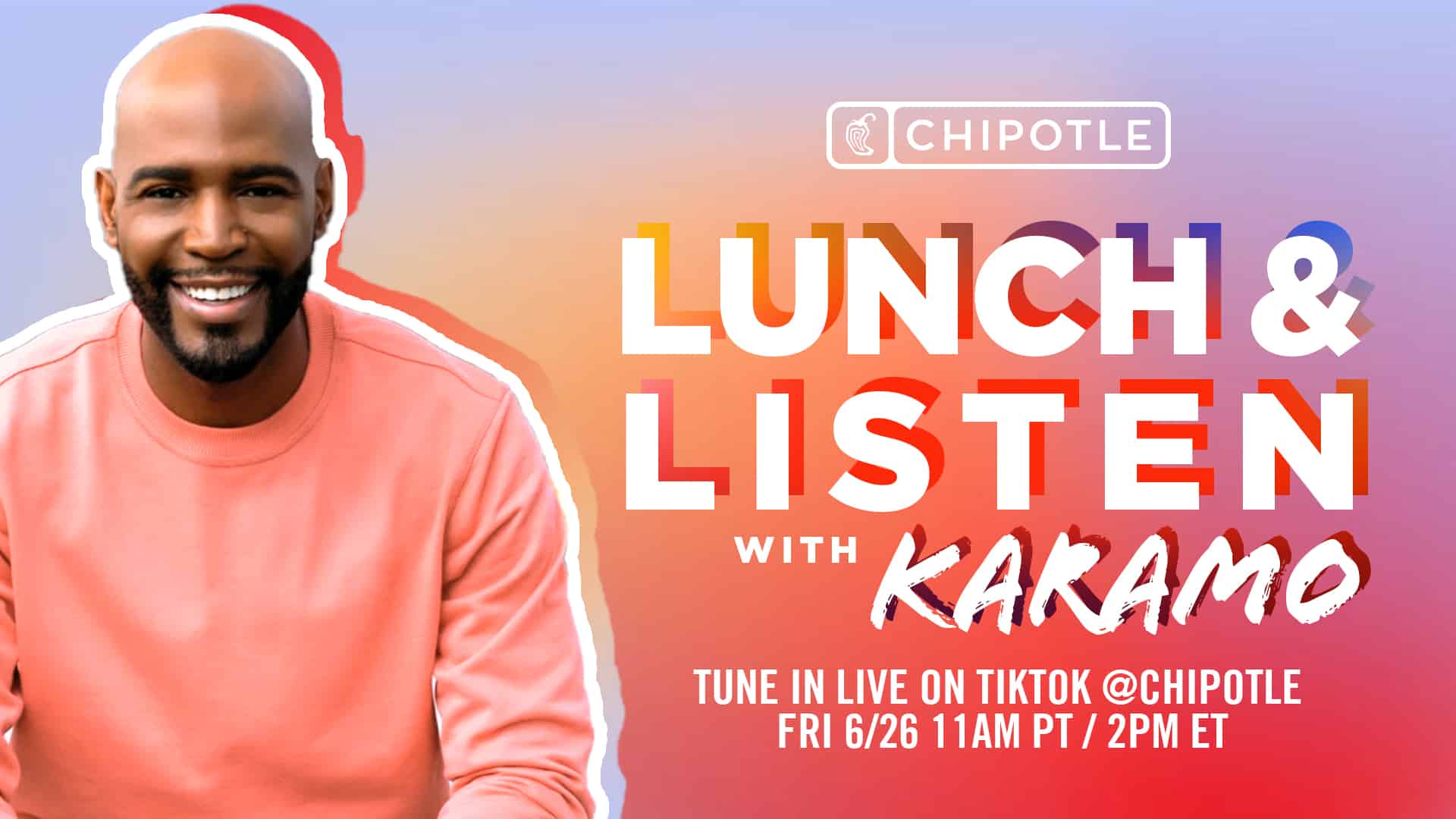
During the pandemic, Cheba Hut managed to open three stores, and two more are planned for the first half of September. The brand is anticipating the opening of seven to 10 more units in 2021.
He adds the timeframe in which the company opened the three stores—whether there’s a pandemic or not—was impressive. Opening stores while also retaining sales and employees was a crucial accomplishment, Larsen says.
“Without our people, for lack of a better term, we’re [expletive],” he explains. “… We do the best we can at our HQ level, but it’s really our employees on the front line that are making it happen every day. For us to operate continuously throughout the pandemic definitely helped us. Restaurants that shut down, even if it was for a short period of time, to then try to bring your employees back and fire back up your operations is a very tall order. So just keeping our employees happy and healthy I think was a big win for us. Without them, we can’t make sales. We can’t do what we do.”
As the restaurant industry moves further into 2020, uncertainty still remains, especially with the removal of federal assistance, which gave consumers extra buying power. The CARES Act, passed at the end of March, sent stimulus checks to millions of Americans and provided a $600 weekly boost to unemployment insurance. By now, those checks have most likely either been spent or saved, and the enhanced benefits expired in July.
Larsen says that at the height of the pandemic, the average ticket was nearly $20, but has since settled at $17.50. However, he’s unsure if that’s directly related to the drop off in benefits or more so because consumers were eating out once a day during that early timeframe and ordering for the entire family.
Either way, it doesn’t change Cheba Hut’s plans going forward.
“I think for us in particular, when there’s any sort of economic uncertainty, people go back to the brands they know, love, and trust and can afford,” Larsen says. “And we fit that model. If people are fearful of losing their jobs or no longer have those additional benefits, the first thing you’re going to cut out are your higher dollar expenses. You’re not going to cut out your fast-casual Cheba Hut sandwich experience. Most of our locations have full bars, as well, so for half the price, you can have eventually a full-service dinner experience. You can go out, grab a sandwich, grab a cocktail.”
Larsen says the brand is well-positioned for the future. When citing the reasons for his optimism, he notes opportunities with real estate and an expanding pool of talent.
Cheba Hut will continue to rely on its culture, employees, and simple menu to achieve growth during the unprecedented environment, the executive says.
“I think people are going to want to go back out and dine,” Larsen says. “Of course there’s always going to be people that are a little more fearful than others, but people have been cooped up for a long time here, and once we’re kind of over the hump here, whether it’s vaccines or just treatments, or it just fizzled out, or if we live with it continuously, I think people are going to find a way, and restaurants are certainly going to find a way.”

